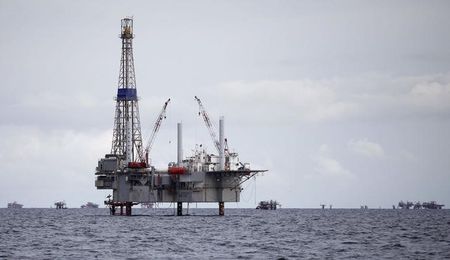
Investing.com– Oil prices fell in Asian trade on Tuesday, retreating after persistent concerns over a worsening conflict in the Middle East drove strong gains through the past week.
Oil markets were hit with a touch of profit-taking after racing to more-than one-month highs in the past week.
Concerns over extended supply disruptions in the U.S. underpinned oil prices, as the country braced for its second major hurricane- Milton- in a month.
Brent oil futures expiring in December fell 0.6% to $80.42 a barrel, while West Texas Intermediate crude futures fell 0.6% to $76.04 a barrel by 21:05 ET (01:05 GMT). Both contracts were at over one-month highs.
But further gains in crude were stymied by strength in the dollar, as expectations of smaller U.S. interest rate cuts boosted the greenback. U.S. inflation data is in focus this week.
Traders were also watching for the reopening of Chinese markets after a week-long holiday, especially as the world’s biggest oil importer announced a slew of major stimulus measures.
Fears of Middle East escalation persist
Fears of an escalation in the Middle East remained the biggest point of support for oil markets, as fighting between Israel and Hezbollah forces intensified this week. Hezbollah fired hundreds of missiles into Israeli territory on Monday, while Israel looked to increase its offensive against Lebanon.
This came after Iran fired scores of missiles against Israel last week, as retaliation for its offensives against Hamas and Hezbollah.
Monday marked a year since Hamas attacks against Israeli targets sparked a renewed war between the two, with the conflict showing few signs of de escalation.
Oil bulls bet that a worsening conflict will disrupt oil supplies from the Middle East, especially if Israel attacks Iran’s oil facilities.
Hurricane Milton disruptions in focus
Oil markets were also watching for the impact of Hurricane Milton on U.S. oil production, with the storm set to pass through the Gulf of Mexico before making landfall at the west coast of Florida this week.
While the hurricane is expected to miss most oil infrastructure in the Gulf of Mexico, several ports in the region were seen imposing restrictions, which could potentially disrupt oil shipments.
This post is originally published on INVESTING.






